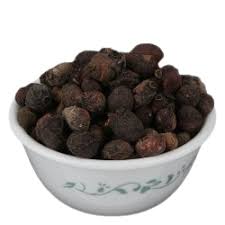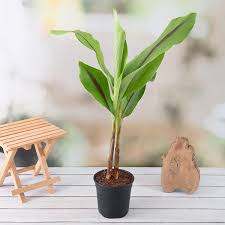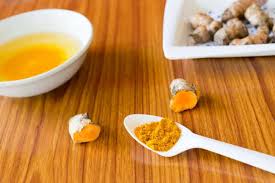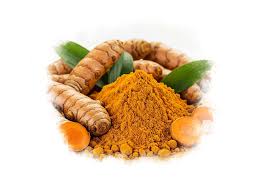In today's fast-paced world, stress has become a common part of everyday life. For freelancers, managing stress is crucial for maintaining both productivity and overall well-being. Fortunately, Ayurveda, the ancient holistic healing system, offers natural remedies to combat stress and promote calmness. At FreelancerBridge, we understand the importance of maintaining a healthy mind while juggling multiple projects. In this article, we will explore Ayurvedic remedies that help reduce stress, calm the nervous system, and promote a sense of balance.
Stress is a major factor that affects mental health, productivity, and overall well-being. Whether you're dealing with work-related pressure, deadlines, or personal challenges, stress can impact your ability to focus and perform at your best. Ayurveda, with its deep roots in natural healing, offers a variety of remedies designed to restore balance to the mind and body. Here’s how you can incorporate Ayurvedic practices into your routine to reduce stress and achieve a calm, focused state of mind:
Understanding Stress in Ayurveda: Ayurveda identifies stress as an imbalance in the body's three doshas—Vata, Pitta, and Kapha. Each dosha has its own characteristics, and when they are out of balance, stress and anxiety can manifest.
- Vata Imbalance: Excessive worry, restlessness, and fear are often linked to Vata imbalances.
- Pitta Imbalance: Pitta-related stress may present as irritability, anger, and frustration, often triggered by high expectations or deadlines.
- Kapha Imbalance: When Kapha is imbalanced, individuals may experience sluggishness, depression, and an overwhelming sense of heaviness.
Ayurveda aims to bring these doshas back into balance through diet, lifestyle, and herbal remedies, providing holistic solutions for stress management.
Ayurvedic Herbs for Stress Relief: Several Ayurvedic herbs have been used for centuries to reduce stress and promote a sense of calm. These herbs help relax the nervous system, balance hormones, and provide mental clarity.
- Ashwagandha (Withania somnifera): Known for its adaptogenic properties, Ashwagandha helps the body cope with stress by lowering cortisol levels and enhancing resilience to stressors.
- Brahmi (Bacopa monnieri): Brahmi is an effective herb for calming the mind, improving concentration, and reducing anxiety. It promotes mental clarity and relaxation.
- Tulsi (Holy Basil): Tulsi is considered a sacred herb in Ayurveda and is widely known for its ability to reduce stress, improve mood, and enhance mental clarity.
- Jatamansi (Nardostachys jatamansi): Jatamansi is used to calm the nervous system and relieve anxiety. It also has a soothing effect on the mind and body, helping to promote restful sleep.
- Ashoka (Saraca asoca): Ashoka is beneficial for individuals experiencing stress related to emotional imbalances and mood swings. It helps promote emotional stability and calmness.
Ayurvedic Oils and Massages for Stress Reduction: Ayurveda recommends using calming oils for head and body massages to reduce stress. Regular oil massages can help alleviate tension in the muscles, calm the nervous system, and promote relaxation.
- Brahmi Oil: Brahmi oil is often used for scalp massages to relieve stress, enhance mental clarity, and calm the mind.
- Lavender and Chamomile Oils: Lavender and chamomile essential oils are known for their calming effects. They are commonly used in Ayurvedic aromatherapy to promote relaxation and reduce anxiety.
Pranayama (Breathing Techniques) for Stress Relief: Breath control, or pranayama, is an essential part of Ayurveda that helps reduce stress by calming the nervous system and improving oxygen flow to the brain. Some pranayama techniques for stress relief include:
- Anulom Vilom (Alternate Nostril Breathing): This technique helps balance the mind and reduce stress by regulating the flow of breath through both nostrils, calming the body and mind.
- Kapalbhati (Breath of Fire): Kapalbhati is an energizing breathing technique that helps clear mental fog, reduce stress, and increase focus.
Dietary Recommendations for Stress Management: Ayurveda emphasizes the importance of diet in managing stress. Eating the right foods can help balance the doshas and calm the mind. Here are some dietary tips to follow:
- Warm, Nourishing Foods: Incorporate warm, soothing foods like soups, stews, and herbal teas into your diet to balance Vata and Kapha doshas.
- Cooling Foods: For stress related to Pitta imbalance, opt for cooling foods like cucumbers, mint, and dairy products to calm the body and mind.
- Avoid Stimulants: Reduce the intake of caffeine, alcohol, and processed foods, as these can exacerbate stress and disrupt mental clarity.
Ayurvedic Lifestyle Practices: Ayurveda places great importance on maintaining a balanced lifestyle to manage stress. Here are some practices to help reduce stress:
- Adequate Sleep: Ensure you get enough sleep to restore energy and mental clarity. A consistent sleep schedule is essential for stress management.
- Yoga and Meditation: Practicing yoga and meditation can help calm the mind, improve focus, and reduce anxiety. Asanas like Sukhasana (easy pose) and Savasana (corpse pose) are particularly beneficial for relaxation.
- Daily Routine (Dinacharya): Following a daily routine, including waking up early, practicing self-care, and scheduling regular breaks, helps maintain balance and reduces stress.
Self-Care Rituals for Stress Reduction: Ayurveda emphasizes the importance of self-care rituals to nourish the body and mind. Creating a calming routine, such as indulging in a warm herbal bath or practicing gentle yoga stretches, can help reduce the impact of stress and enhance well-being.













